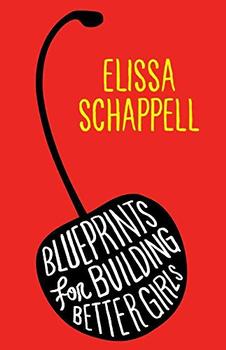
Fiction
Elissa Schappell's Use Me introduced us to a writer of extraordinary talent, whose "sharp, beautiful, and off-kilter debut" (Jennifer Egan) garnered critical acclaim and captivated readers.
In Blueprints for Building Better Girls, her highly anticipated follow-up, she has crafted another provocative, keenly observed, and wickedly smart work of fiction that maps America's shifting cultural landscape from the late 1970s to the present day.
In these eight darkly funny linked stories, Schappell delves into the lives of an eclectic cast of archetypal female characters—from the high school slut to the good girl, the struggling artist to the college party girl, the wife who yearns for a child to the reluctant mother— to explore the commonly shared but rarely spoken of experiences that build girls into women and women into wives and mothers. In "Monsters of the Deep," teenage Heather struggles to balance intimacy with a bad reputation; years later in "I'm Only Going to Tell You This Once," she must reconcile her memories of the past with her role as the mother of an adolescent son. In "The Joy of Cooking," a phone conversation between Emily, a recovering anorexic, and her mother explores a complex bond; in "Elephant" we see Emily's sister, Paige, finally able to voice her ambivalent feelings about motherhood to her new best friend, Charlotte. And in "Are You Comfortable?" we meet a twenty-one-year-old Charlotte cracking under the burden of a dark secret, the effects of which push Bender, a troubled college girl, to the edge in "Out of the Blue into the Black." Weaving in and out of one another's lives, whether connected by blood, or friendship, or necessity, these women create deep and lasting impressions. In revealing all their vulnerabilities and twisting our preconceived notions of who they are, Elissa Schappell, with dazzling wit and poignant prose, has forever altered how we think about the nature of female identity and how it evolves.
"Despite the talent for arch comedy that Schappell and her characters share, the tragic dimension of each story sears the heart." —Kirkus Reviews (starred)
"Schappell…creates wise, sexy, funny, and fathoms-deep tales of dire miscommunication." —Booklist
"This is brave stuff. I learned things reading this book. Hilarious and heartbreaking at the very same time, these mothers, daughters, wives are all struggling to be honest with themselves—and we get the gift of Schappell being honest with us. These characters are poignant, searing, memorable." —Elizabeth Strout, author of Olive Kitteridge
"Like many American women, Elissa Schappell's characters live in that zone where toughness and vulnerability overlap. In this remarkable, deeply engaging collection of stories, Schappell introduces us to a wide variety of female characters, from reckless teenagers to rueful middle-aged moms, and asks us to ponder the mystery of how those girls became these women." —Tom Perrotta, author of Little Children
This information about Blueprints for Building Better Girls was first featured
in "The BookBrowse Review" - BookBrowse's membership magazine, and in our weekly "Publishing This Week" newsletter. Publication information is for the USA, and (unless stated otherwise) represents the first print edition. The reviews are necessarily limited to those that were available to us ahead of publication. If you are the publisher or author and feel that they do not properly reflect the range of media opinion now available, send us a message with the mainstream reviews that you would like to see added.
Any "Author Information" displayed below reflects the author's biography at the time this particular book was published.
Elissa Schappell is a novelist, short story writer, editor and essayist. She was a senior editor at The Paris Review, and has been a contributor to magazines such as GQ, Vogue and Spin. Schappell has also written book reviews for the New York Times and is the editor of a column for Vanity Fair. She is the co-founder of the literary magazine Tin House.
Her first novel, a collection of ten short stories, Use Me, was a finalist for the PEN/Hemingway Award. Schappell also co-edited The Friend Who Got Away, an essay collection published in 2005.
In youth we run into difficulties. In old age difficulties run into us
Click Here to find out who said this, as well as discovering other famous literary quotes!
Your guide toexceptional books
BookBrowse seeks out and recommends the best in contemporary fiction and nonfiction—books that not only engage and entertain but also deepen our understanding of ourselves and the world around us.